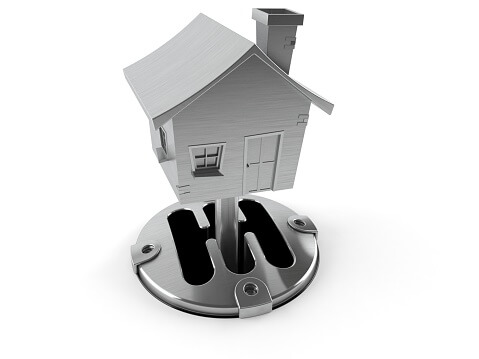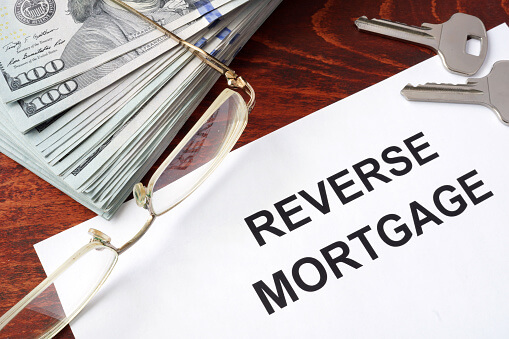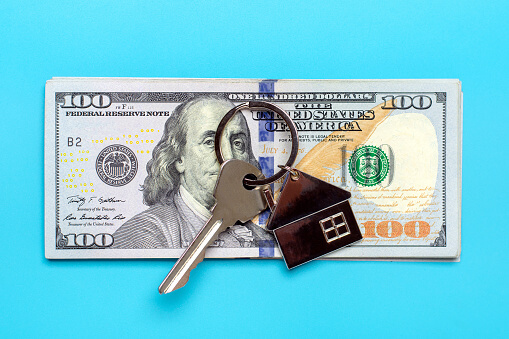How you receive reverse mortgage payments can be a problem if you file bankruptcy. The Chapter 13 bankruptcy trustee is generally not a problem. But in a Chapter 7 bankruptcy, your nonexempt equity can be a problem and an attachable asset. If you have taken a lump sum and those funds are in a bank account, filing bankruptcy can sometimes cause you to lose those funds.
A reverse mortgage requires that you maintain the home and promptly pay taxes and property insurance. The failure to do will cause a foreclosure. The bank is looking to make a profit from selling the house and keeping some of the home equity. If you violate the reverse mortgage guidelines, they will foreclose and sell the home early.
Only an experienced bankruptcy attorney will know how to safeguard those funds in bankruptcy proceedings.
Qualifying for a Reverse Mortgage after Bankruptcy
You can qualify for a reverse mortgage with no reverse mortgage documentation one year after a Chapter 7 bankruptcy discharge. If you apply within a year, you will need documentation of the discharge and the bankruptcy schedules. This period, however, is three years if you include an FHA loan in your petition for bankruptcy relief.
You can qualify for a reverse mortgage during Chapter 13. However, this requires court approval whether you get the reverse or apply with a normal mortgage company.
The Better Reverse Mortgage Loans
The home equity conversion mortgage is one of the better reverse loans. With a home equity conversion mortgage, you must have at least 50% equity in the home. The Home Equity guidelines require the loan to be made to the residential homeowner 62 years or older.
All property taxes and insurance must be paid, and you must attend a counseling session with an approved HUD counselor. A federal reverse mortgage is a non-recourse mortgage debt where you are not personally liable for the debt. Instead, the property insures the loan will be paid back.
A Traditional Mortgage and Mortgage Debt after Bankruptcy
You normally have to wait 2 years after a Chapter 7 Bankruptcy to qualify for a traditional mortgage. With FHA, VA and Kentucky Housing Corporation, the waiting period is two years after Chapter 7 debt relief.
With some commercial mortgages, the period is 7 years. Yes, many lenders will take your application. But they will deny the loan until after these waiting periods and until you show you can manage house payments.
Types of Reverse Mortgages
Federally guaranteed loans are the only loans you should consider. If the loan is federally guaranteed, you must also not be delinquent on a student loan or income taxes.
Proprietary reverse mortgages are private loans with much higher rates and are risky. Remember that this loan is the most likely type of loan to cause a foreclosure.
There single purpose state loans which can be used to repay property taxes and get a home out of foreclosure.
How Does a Reverse Mortgage Work?
When you attempt to get a normal mortgage, your debt-to-income ratio and FICO score will control most of whether or not you get the mortgage loan. With reverse mortgages, your monthly income is not one of the important factors in lending to you.
You can receive a stream of payments over time, a lump sum or a line of credit from the reverse mortgage. However, your equity and the interest rate will determine how much you can borrow.
Reverse Mortgages and Foreclosures
What often happens is the homeowner takes a large lump sum payment and then is unable to make insurance payments or taxes. Common causes of a reverse mortgage foreclosure include;
- Death of either of the owners. However, the executor of the estate may still sell the property or pay off a reverse mortgage.
- Moving out of the home.
- Committing waste. This is not maintaining the home or destruction of the house.
- Failure to pay taxes or insurance.
If you trigger foreclosure, then see a bankruptcy attorney immediately. There are many bankruptcy attorneys, but you are looking for one skilled in handling foreclosures. A Chapter 13 bankruptcy with a low monthly payment is normally what you are looking for.
Reverse Mortgage Foreclosure Proceedings
Occasionally, you see reverse mortgages in a foreclosure proceeding. Failing to pay for property insurance is the major cause of reverse mortgage foreclosures. Taxes are often purchased by individuals and then held, collecting a 12% interest rate in Kentucky.
In Texas, purchased property taxes have a 21% interest rate. The tax lien holder can file a foreclosure as well as the reverse mortgage lender.
A reverse mortgage and equity withdrawal are safe when the homeowner can maintain the home and obligations. But reverse mortgages are made on the basis that there is significant equity in the house. Whether the owner could afford monthly payments is a minor issue where you only have to show your ability to pay taxes and insurance.
Filing Bankruptcy and Keeping Your Reverse Mortgage Funds
If you file bankruptcy, the trustee or the court can take your nonexempt equity in any asset. If your reverse mortgage agreement is merely a line of credit, you are relatively safe. However, if you have nonexempt cash or some other asset, you may be limited in what you can keep.
Many people file bankruptcy to stop a mortgage foreclosure. Filing bankruptcy may allow you to pay off property tax debts. Chapter 13 is a relatively safe and efficient method to do this within your monthly income.
Protecting Your Home Equity
More and more people turn to a reverse mortgage to pay monthly expenses. However, this reduces their equity, leaves them with more debt, and dies not to sell the financial situation. The loan is based on property value, not the ability to repay the debt.
When a property value decreases, the property is not maintained, and taxes and insurance are not paid on time, it will trigger foreclosure.
Reverse Mortgages as a Line of Credit or Lump Sum
Many people do use reverse mortgage payments to supplement their income. A monthly payment amount helping you to meet your budget can be helpful to meet those monthly expenses.
What Happens to a Reverse Mortgage in Bankruptcy Court?

Every bankruptcy case is best thought of as a bankruptcy agreement. In Chapter 7, you can surrender the home and owe nothing, or the bankruptcy filing can list your intent to keep and reaffirm the mortgage to keep a home.
If you file for bankruptcy as a Chapter 13 case, you are required to keep up insurance payments, and bankruptcy protection means you can keep the mortgage and catch up on the debt for the taxes. If you continue to fall behind, the case can be dismissed, or the lender can ask to terminate the stay and go back to collect the loan balance in a foreclosure action.
Can I Keep My Mortgage if I File Bankruptcy?
Traditional mortgages in a bankruptcy case are only modified if a second mortgage has no equity in a property. If there is no equity, the loan is essentially an unsecured debt. But to strip a second or junior mortgage, there must be no equity for the second or junior mortgage.
Reverse mortgages are no different; if there is no equity for the reverse mortgage, it can be stripped just like a traditional second mortgage. The bankruptcy attorney should spot this issue if you are filing for bankruptcy.
Bankruptcy exemptions allow you to keep a home as long as there is no nonexempt equity in a Chapter 13 bankruptcy.
Can Creditors Go After Reverse Mortgage Payments?
When a law firm working for creditors obtains a judgment, they can attach a bank account. Certain incomes, such as social security funds, cannot be attached. But as soon as social security is mingled with other funds, it can be taken. Your reverse mortgage payments are no different. It can be attached as soon as it is deposited.
A law firm can also attach a home and any nonexempt home equity. You can sell a home to avoid home foreclosure, but the loan balance for a reverse mortgage will have to be repaid. Any reverse mortgage will have such a provision in the reverse mortgage documents.
Want a Qualified Bankruptcy Attorney?
We look over your reverse mortgage documents to see if the reverse mortgage company has filed for foreclosure. We understand financial difficulties can cause a setback. All bankruptcy attorneys are debt relief agency by an act of congress, which means we use the bankruptcy code in order to give you a fresh start again.
Yes, we fight foreclosure proceedings in state court. But often, a bankruptcy case can put the matter before a federal judge to stop what may be an unfair legal process in state court. Our attorney-client relationship with you means the bankruptcy court will look at your monthly income in order to design a solution.
Filing for bankruptcy provides bankruptcy relief from collections. We give a free consultation. Our law firm has been helping debtors stop foreclosures and filing for bankruptcy since 1988. We have been teaching bankruptcy attorneys in NBI, Morgan King and Lorman seminars for years. We would like to help you file for bankruptcy and obtain the necessary debt relief.
Resources for Bankruptcy
Louisville, Kentucky Bankruptcy Forms
Indiana Bankruptcy Exemptions • Video
Filing Chapter 7 & Chapter 13 Bankruptcy
How to Qualify for a Chapter 7
How to Keep Tax Refunds in Chapter 7 or 13 Bankruptcy
Retirement Benefits & 401k in bankruptcy
How to Keep Your Property When Filing Bankruptcy in Kentucky
If you are considering bankruptcy, don’t delay because timing is crucial. I am here to help you. So, contact my office right away to start the conversation. Nick C. Thompson, Bankruptcy Attorney: 502-625-0905.






